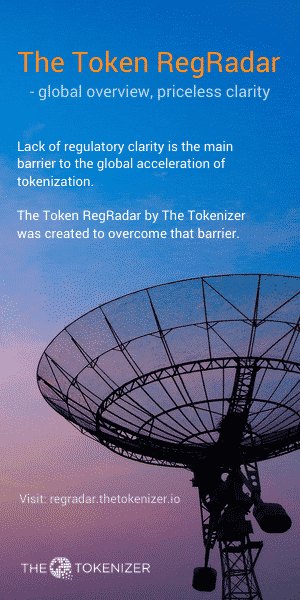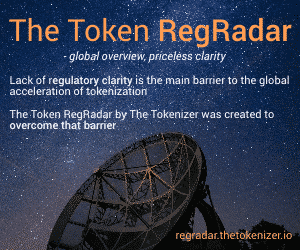daura counts on smart contract standard CMTAT for the tokenization of Swiss shares
Swiss Distributed Ledger technology (DLT) bill
Since 2017, efforts have been underway in various jurisdictions such as Liechtenstein, Germany, France, Japan, Singapore and, of course, Switzerland to encourage the further development and legal embedding of DLT-based assets, while also limiting the associated risks.
In contrast to Liechtenstein, Switzerland has not created a new law on its own, but has introduced amendments to existing (federal) laws in 2021 to deal with crypto-based assets, for example in the Swiss Code of Obligations (“CO”), where the creation of so-called ledger-based securities is regulated in Art. 973d et seq. CO.
Ledger-based security
A ledger-based security is a right which, in accordance with an agreement between the parties, is entered into a securities ledger and may only be exercised and transferred to others via this securities ledger. It thus constitutes a novel, completely electronic form of a security that is digitally transferrable by means of a blockchain- or DLT-based infrastructure. In this way, all claims or membership rights that could also be issued as “traditional” (paper-based) fungible negotiable securities or as simple uncertificated securities may now be issued purely digitally. Examples for such ledger-based securities are the equity shares issued by Swiss companies limited by shares via the daura platform.
Token standard for securities
The CMTA token standard for securities (CMTAT) is a digital token framework that enables the creation of ledger-based securities in accordance with Swiss law. The CMTAT was primarily conceived for the tokenization of equity shares. Its modular structure does however also make it suitable for the tokenization of other forms of securities, such as debt instruments or structured products. Furthermore, CMTAT includes support functionalities, such as reliable deployment and gasless transactions.
CMTAT mainly differs from the previous version CMTA20 in the following aspects:
- A generic, platform-agnostic Ethereum-oriented token
- Modular design with a core set of functionalities and optional modules
- Support for “gasless” transactions on Ethereum (i.e. transactions where the fee is charged to a party other than their initiators).
The functional specifications of the CMTAT are summarized here.
The CMTAT GitHub repository provides CMTA’s reference implementation of CMTAT for Ethereum, as an ERC-20 compatible token.
Capital Markets and Technology Association (CMTA)
The CMTAT was developed by a working group created by the Capital Markets and Technology Association (CMTA) under the supervision of CMTA’s Technical Committee.
“We are delighted to see solutions being developed to take advantage of the huge benefits that tokenization and the use of public blockchains is bringing to the corporate world. These solutions simplify the manner in which companies can track the ownership of their shares, and bring certainty and reliability to processes that are currently still mainly manual. We are also happy to see that CMTA’s smart contracts are being recognized as the appropriate standard in this context by daura ltd. Using collaboratively developed open-source code for smart contracts reduces overall development and due diligence costs for participants, and generally contributes to the reliability and efficiency of transactions.“ Jacques Iffland, CMTA’s Chairman of the Executive Committee, and Partner at Lenz & Staehelin
CMTA is a not-for-profit, non-governmental association that brings together leading actors from Switzerland’s financial, tech and legal sectors, in the creation of standards to facilitate the use of DLT in the field of capital markets. daura has joined the association earlier this year.
First choice of security token standard
There are several security token standards to choose from in the industry, such as ERC 1400, Polymesh, ERC 3643. After analyzing all of them, daura decided to go for CMTAT. The key deciding factors behind choosing CMTAT were:
- Enabling of tokenization of equity and debt securities
- Full compliance with Swiss laws
- ERC-20 compatibility
- Open-source solution
- Audited smart contracts
- Designed and engineered in Switzerland

The CMTAT smart contract runs on zkSync Layer 2 blockchain. Rollups are a great way to scale up web3 applications. daura has evaluated zkSync as its preferred blockchain.
Growing CMTAT ecosystem in Switzerland
Up to now, the CMTAT or its predecessor version CMTA20, were used for the tokenization of the shares of companies such as Audacia, Alaïa, or MagicTomato. Qoqa is also planning to use the CMTAT for the announced tokenization of the non-voting shares of its subsidiary Qoqa Brew.
“When we decided to open the daura platform for a public DLT, it was clear to us from the beginning that we would not develop our own smart contract for equity. We examined various options and decided on the CMTAT standard. The decisive factor was that CMTA has a broad ecosystem in Switzerland, ensuring interoperability between regulated financial service providers and independent wallet providers. Through our active membership in CMTA, we can bring our customers’ requirements into the consortium and work together on a standard for the Swiss digital share.” Peter Schnürer, CEO of daura
Photo by Patrick Federi on Unsplash
Read other stories: ‘Starbucks® Odyssey’ Beta Is Now Live on Polygon
You Might also Like















